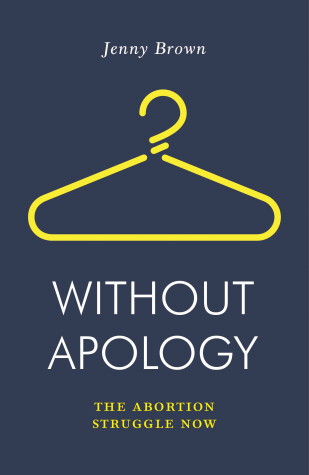Jacobin
1 total work
An indispensable guide to building a fighting feminist movement for reproductive freedom
With an antiabortion majority on the Supreme Court and several states attempting to outlaw abortion altogether, many activists are on the defensive, hoping to hold on to reproductive rights in a few places and cases. This spirited book shows how feminism can start winning again.
Jenny Brown uncovers a century of legal abortion in the United States until 1873, recalls women’s experiences in the illegal days, and shows how the women’s liberation movement of the 1960s really won abortion rights. She draws inspiration and lessons from the radicals of Redstockings, the Army of Three, and the Jane Collective, putting together a road map for today’s organizers from the black feminist argument for reproductive justice, the successful fight to make the morning-after pill available over the counter, and the recent mass movement to repeal Ireland’s abortion ban.
Brown argues that politically conservative nonprofits have been setting the agenda, emphasizing rare tragic cases and relying on the rhetoric of choice and privacy. Instead, it is time to return to the fundamental ideas that won legal abortion in the first place: Women publicly telling the full truth of their own experience, demanding repeal of all abortion restrictions, and showing how abortion and birth control are the key demands in the struggle for women’s freedom.
With an antiabortion majority on the Supreme Court and several states attempting to outlaw abortion altogether, many activists are on the defensive, hoping to hold on to reproductive rights in a few places and cases. This spirited book shows how feminism can start winning again.
Jenny Brown uncovers a century of legal abortion in the United States until 1873, recalls women’s experiences in the illegal days, and shows how the women’s liberation movement of the 1960s really won abortion rights. She draws inspiration and lessons from the radicals of Redstockings, the Army of Three, and the Jane Collective, putting together a road map for today’s organizers from the black feminist argument for reproductive justice, the successful fight to make the morning-after pill available over the counter, and the recent mass movement to repeal Ireland’s abortion ban.
Brown argues that politically conservative nonprofits have been setting the agenda, emphasizing rare tragic cases and relying on the rhetoric of choice and privacy. Instead, it is time to return to the fundamental ideas that won legal abortion in the first place: Women publicly telling the full truth of their own experience, demanding repeal of all abortion restrictions, and showing how abortion and birth control are the key demands in the struggle for women’s freedom.
